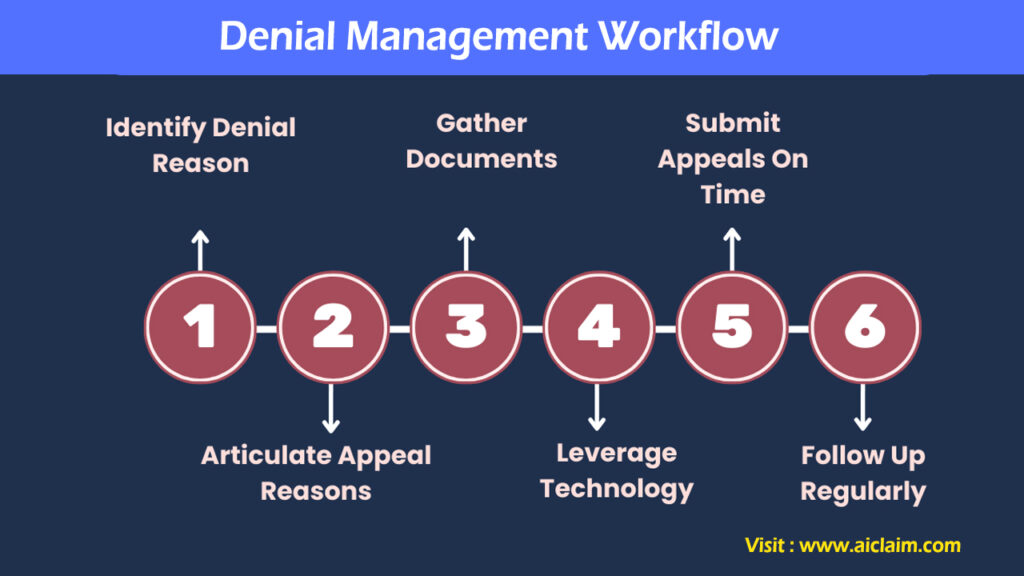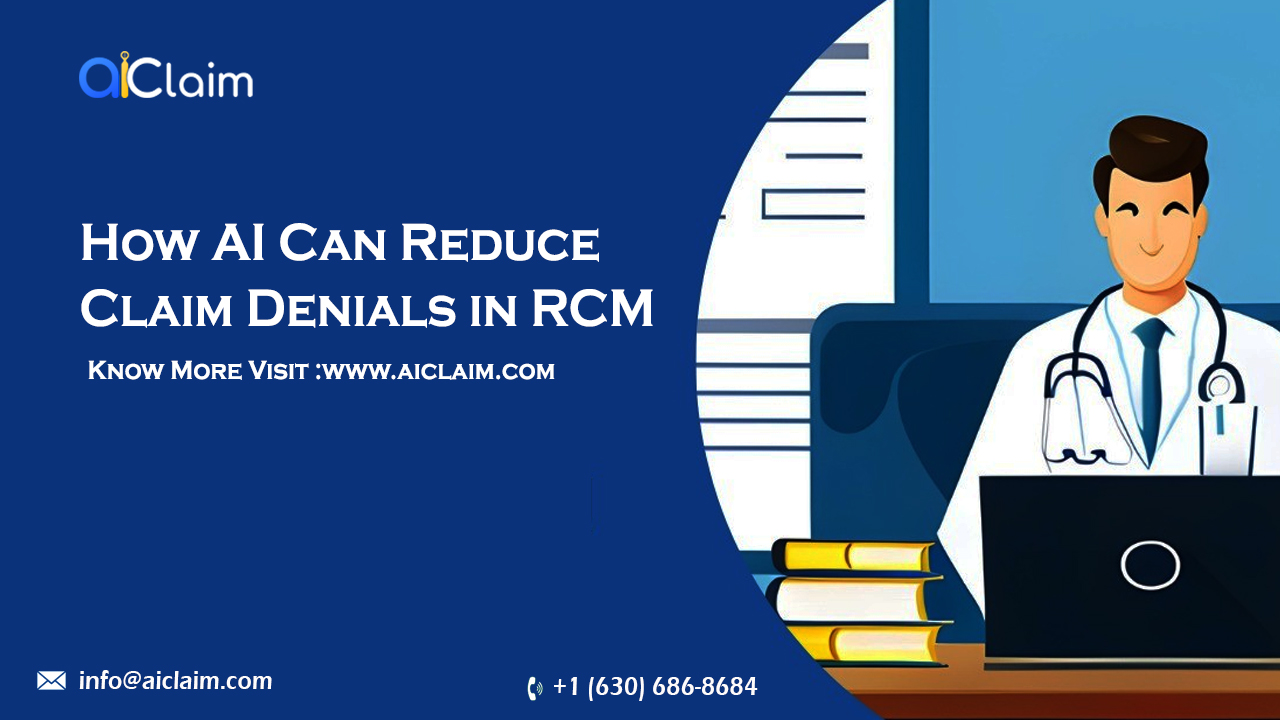In the world of healthcare and insurance, claim denials are a major source of revenue loss and operational inefficiency. While providers spend countless hours correcting and resubmitting claims, the truth is that most denials are entirely preventable.
Fortunately, with the rise of AI-powered denial management tools, organizations can proactively catch and correct issues before a claim is ever submitted.
In this post, we’ll break down the top 7 reasons claims get denied, and more importantly, show you exactly how AI can eliminate these problems at the root.

📌 1. Incomplete or Inaccurate Patient Information
Why it happens:
Even a small typo in a patient’s name, insurance ID, or date of birth can trigger a claim denial. In many cases, these are manual errors that slip through the cracks.
How AI helps:
AI platforms automatically validate and cross-check patient data across multiple sources in real-time. Moreover, these systems flag incomplete fields and mismatches instantly—allowing for corrections before submission.
As a result, healthcare providers reduce the number of rejections due to data discrepancies.
✅ AI Advantage:
- Real-time data validation
- Reduced manual entry errors
📌 2. Incorrect or Outdated Coding
Why it happens:
Claim denials due to incorrect CPT, ICD, or HCPCS codes. Inaccurate coding not only delays payments but may also lead to audits.
How AI helps:
AI-driven coding tools analyze historical data and suggest the most accurate and compliant codes. Additionally, machine learning continuously adapts to payer-specific rules, ensuring every code submitted is both current and relevant.
In fact, this dramatically reduces the chance of human error in complex billing workflows.
✅ AI Advantage:
- Dynamic coding assistance
- Compliance with evolving standards
📌 3. Lack of Medical Necessity
Why it happens:
Even when a treatment is valid, payers can still deny the claim if supporting documentation is weak or doesn’t clearly justify the procedure.
How AI helps:
AI scans documentation, checks against payer medical necessity policies, and highlights any gaps. Furthermore, it helps providers align clinical notes with covered diagnoses—ensuring claims are medically justified from the start.
Therefore, denials for insufficient documentation are significantly minimized.
✅ AI Advantage:
- Proactive clinical document matching
- Policy-compliant justification

📌 4. Missed Filing Deadlines
Why it happens:
Claims must be submitted within strict timeframes. However, due to staff shortages or poor tracking, many claims expire before submission.
How AI helps:
AI automates workflow prioritization and sends real-time alerts when deadlines approach. Not only does this ensure timely submission, but it also helps reduce the backlog of unprocessed claims.
As a result, providers can stay compliant without manual tracking.
✅ AI Advantage:
- Deadline alerts & automation
- Faster claims turnaround
📌 5. Duplicate Claim Submissions
Why it happens:
Duplicate claims often occur due to miscommunication between departments or repeated manual entries.
How AI helps:
AI compares each new submission against the claim history and detects duplication patterns. Additionally, it flags potential double entries in real time—stopping redundancy before it impacts your revenue.
Consequently, unnecessary denials are avoided, and operations stay clean and efficient.
✅ AI Advantage:
- Duplicate prevention system
- Enhanced internal coordination
📌 6. Non-Covered Services
Why it happens:
Submitting claims for procedures that aren’t covered under the patient’s policy is a guaranteed denial.
How AI helps:
AI systems integrate with payer data and perform real-time eligibility checks. Moreover, they flag services outside of coverage and recommend alternatives that are eligible under the policy.
Therefore, billing teams avoid wasting time and effort on unpayable claims.
✅ AI Advantage:
- Policy-aware recommendations
- Fewer out-of-coverage errors
📌 7. Authorization or Referral Issues
Why it happens:
Failure to secure pre-authorization or missing referral documentation leads to one of the most frustrating types of denials—especially for specialist procedures.
How AI helps:
AI automates the authorization process, tracks progress, and alerts staff when actions are pending. Additionally, it can even integrate directly with payer portals for faster turnaround.
Thus, you ensure every claim is fully authorized before hitting “submit.”
✅ AI Advantage:
- Automated pre-auth tracking
- Fewer overlooked requirements
💡 Why Aiclaim is the Future of Denial Management
Aiclaim leverages the power of AI, automation, and predictive analytics to help healthcare providers:
- Catch claim issues before submission
- Boost first-pass acceptance rates
- Reduce time spent on rework and appeals
- Prevent revenue leakage at every stage
Unlike traditional RCM tools, Aiclaim adapts in real time, learns from historical data, and continuously improves denial prevention strategies.
🚀 Don’t Just React—Prevent Denials Before They Happen
The bottom line is clear: AI is no longer optional in modern claims management.
By identifying red flags early and automating routine checks, your organization can:
✅ Save time
✅ Recover revenue
✅ Boost operational efficiency
✅ Strengthen payer relationships
📲 Start Your AI-Powered Denial Prevention Journey Today
👉 Visit: www.aiclaim.com
📞 Call us: +1 (630) 686-8684
📧 Email: info@aiclaim.com
Take control of your claim outcomes with Aiclaim’s intelligent automation.




